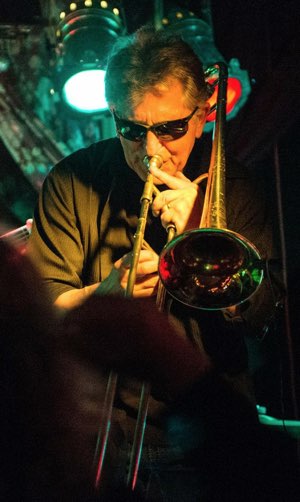Yesterday was the 100 year anniversary of J. J. Johnson’s birth, January 22, 1924. Of course, that’s not the kind of day we can just let pass into history without saying something. J.J. was — and is — one of the most influential jazz trombonists ever. A big reason for that influence was a slide-trombone-technical-facility that could meet the demands of “be-bop,” the primarily small band jazz music that emerged after the big band based Swing Era. Given that accomplishment, it seems surprising that J.J. might say the following to jazz critic Leonard Feather about his early experiences with the trombone:
“There’s an innate clumsiness about it; it’s a beastly, horrid instrument to play, and particularly to play jazz on. Many times I wondered, how and why did I ever pick up this horrid instrument?”
How could J.J. feel that way? In The Encyclopedia of Jazz, Leonard Feather wrote of J.J.:
“In the early stages of bop evolution his technique seemed so incredible that many listeners to his records refused to believe that he was not playing a valve trombone to achieve the fast-moving multi-note passages which this type of improvisation sometimes required.”
Even as his innovations were changing people’s minds about what jazz trombone could sound like, J.J. appreciated — and was no doubt influenced by — all the formidable trombonists who could get around all that “innate clumsiness,” thank you very much: Trummy Young, Fred Beckett, Vic Dickenson, Jack Teagarden among others. Importantly, as revolutionary as J.J.’s trombone be-bop forays seemed to be in the 1940s, there was always more to it than mere technical facility. The impetus was musical, and his musical influences began well before the advent of “be-bop.” Johnson became a composer, too. He played and wrote music the way he did because that’s the way he heard it: with clarity. It’s that musical approach, just as much as the technical facility, that remains a model for jazz trombonists today.

